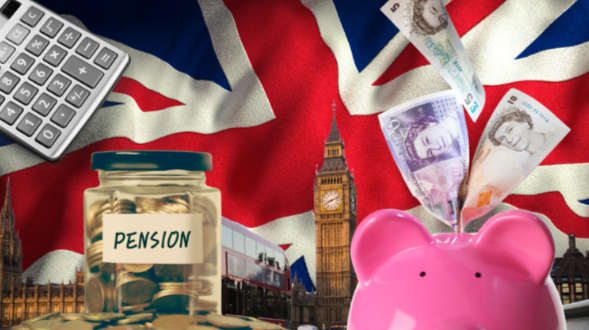The UK's pension inheritance tax shake-up will fundamentally change how your British retirement savings are passed on to your family – and time is running out to prepare.
If you're one of the thousands of Kiwis who worked in the UK and left behind a pension scheme, 2027 marks a watershed moment that could dramatically impact your family's financial future. The UK government's decision to bring unused pensions into the inheritance tax net represents the most significant change to pension taxation in over a decade – and it's happening whether you're ready or not.
The End of an Era: Pensions Lose Their Tax Haven Status
For years, UK pensions have been the ultimate inheritance planning tool. Unlike other assets, unused pension funds could be passed to beneficiaries completely free of inheritance tax, making them incredibly attractive for wealth preservation. This tax-free status has been particularly valuable for New Zealand residents who might not need to access their UK pensions immediately, given our own robust retirement system.
That golden era ends on April 6, 2027.
From that date, unused pension funds will be treated just like any other asset in your estate. If your total UK assets – including property, investments, and now pensions – exceed £325,000 (or £650,000 for couples), your beneficiaries will face a 40% inheritance tax bill on the excess.
The Double Tax Trap: A Potential 67% Hit
Here's where it gets particularly painful for families. If you die after age 75, your pension beneficiaries already face income tax on withdrawals at their marginal rate. Add the new 40% inheritance tax on top, and some families could see an effective tax rate of up to 67% on inherited UK pensions.
For a New Zealand family inheriting a £200,000 UK pension from a deceased relative over 75, this could mean paying £134,000 in combined taxes – leaving just £66,000 of the original fund.
Why This Hits New Zealand Residents Particularly Hard
As a New Zealand resident with UK pension assets, you face unique challenges:
Distance Complicates Planning: Managing UK financial affairs from 18,000 kilometres away was already complex. These changes add layers of compliance and decision-making that require immediate attention.
Currency and Tax Complexity: You're potentially dealing with inheritance tax calculations in GBP while your estate planning may be primarily in NZD, creating currency risk and compliance complications.
Limited Local Expertise: While New Zealand has excellent financial advisors, finding those with deep expertise in UK pension and inheritance tax law can be challenging.
Timing Pressures: Unlike UK residents who might hear about these changes through their local advisor network, many New Zealand-based pension holders remain unaware of the approaching deadline.
The Government's Revenue Grab Explained
The UK government hasn't made this change lightly. Treasury estimates suggest that 10,500 additional estates will become liable for inheritance tax for the first time, while 38,500 existing liable estates will pay more. For the government, this represents a significant revenue boost at a time when public finances are under pressure.
But the real driver isn't just revenue – it's fairness. The government argues that pensions have become an inheritance tax avoidance vehicle for the wealthy, rather than serving their intended purpose of funding retirement. By bringing pensions into the inheritance tax net, they're levelling the playing field with other asset classes.
Your Action Plan: Four Critical Steps Before April 2027
Conduct a Complete Asset Audit Map out all your UK assets – pensions, property, investments, bank accounts. Many New Zealanders underestimate their total UK estate value, particularly when property values are included. Remember, it's the combined value that determines inheritance tax liability.
Review Your Pension Beneficiaries Ensure your UK pension scheme has up-to-date beneficiary nominations. With the new rules, you may want to reconsider who you're nominating and in what proportions, particularly considering their own tax positions.
Explore Early Withdrawal Strategies If you don't immediately need your UK pension for living expenses, it might now make sense to withdraw funds and invest them in more tax-efficient vehicles. This is particularly relevant if you're approaching or over age 75, where the income tax implications change significantly.
Consider Cross-Border Tax Planning Investigate whether moving pension funds to New Zealand through schemes like the Overseas Investment Office approved KiwiSaver transfers could be beneficial. The rules around international pension transfers are complex, but the new UK inheritance tax regime may tip the balance in favour of consolidating your retirement savings in New Zealand.
The Annuity Renaissance: An Old Solution for a New Problem
Interestingly, these changes may revive interest in annuities – financial products that guarantee income for life but leave nothing for inheritance. With annuity rates at their highest levels since 2008, converting part of your pension to guaranteed income could remove those assets from inheritance tax scope while providing certainty.
For New Zealand residents, this might be particularly attractive if you're looking for UK-sourced income to hedge currency risk or fund UK-based expenses like property maintenance or family visits.
Don't Let Distance Become Disadvantage
The biggest risk for New Zealand-based UK pension holders is inaction born from distance and complexity. While the rules won't be finalised until closer to the implementation date, the broad framework is clear, and early planning will provide more options.
The UK pension landscape is changing forever. Those who adapt their strategies now will be best positioned to minimise the impact on their families. Those who wait until 2027 may find their options severely limited and their families facing unnecessary tax bills.
Take Action Today
The clock is ticking toward April 2027, but you still have time to act. However, effective planning for these changes requires understanding not just UK inheritance tax law, but how it interacts with New Zealand tax obligations and estate planning rules.
Ready to protect your family's inheritance? Contact our team for a comprehensive review of your UK pension assets and personalized strategies to navigate the 2027 changes. We specialise in helping New Zealand residents optimise their UK financial affairs and can provide the cross-border expertise you need.
Know someone else who might be affected? Many New Zealanders with UK work history remain unaware of these impending changes. Feel free to share this article with friends, family, or colleagues who may have UK pensions. When they're ready to explore their options, we're here to help with expert guidance tailored to their unique situation.
Don't let distance and complexity cost your family thousands. Book your consultation today and ensure your UK pension works for your family, not the taxman. Our initial consultation is free of charge – because getting the right advice shouldn't add to your financial burden.
This article is for general information purposes only and should not be considered personal financial advice. UK pension and inheritance tax rules are complex and subject to change. Always seek professional advice tailored to your specific circumstances.
Sources: UK Government Technical Consultation Response - "Inheritance Tax on pensions: liability, reporting and payment" (January 2025); HM Treasury Autumn Budget 2024; House of Commons Library Research Briefings on pension tax relief.





